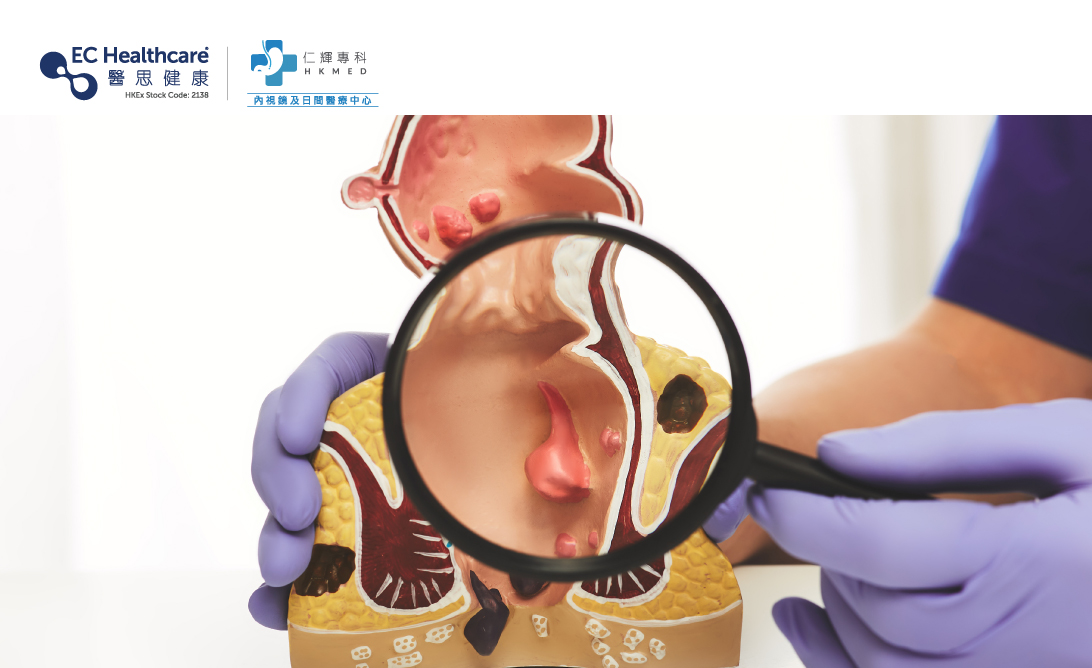The Relationship Between Polyps and Colorectal Cancer


When a colonoscopy reveals the presence of polyps in the colon, it can be alarming as many people associate them with colorectal cancer. However, it's important to note that colonic polyps can be classified into different types, and not all types have the potential to develop into cancer. Therefore, if you are informed of the presence of colonic polyps after an examination, it is crucial not to jump to conclusions. Instead, ask your doctor about the specific type of polyps to obtain a more comprehensive understanding of the situation.

Commonly, individuals with a family history, smoking and drinking habits, a diet low in vegetables and high in meat, advanced age, obesity, prolonged sitting, lack of exercise, or those with inflammatory bowel disease are generally more prone to developing colonic polyps.
Type of Colonic Polyps: Adenomatous Polyps
Adenomatous polyps can be considered the culprits behind the development of colorectal cancer. In nearly 70% of colorectal cancer cases, the journey begins with a tiny adenomatous polyp that gradually grows over 5 to 10 years. Some larger adenomatous polyps can even transform into colorectal cancer within less than 3 years. Adenomatous polyps can appear in various parts of the colon or rectum. If the doctor identifies adenomatous polyps that are villous, tubular, mixed in structure, or larger than 1 cm, they are often completely removed to reduce the risk of cancer development.
Type of Colonic Polyps: Serrated Polyps
Serrated polyps, as compared to adenomatous polyps, have the potential for early carcinogenesis and are more commonly found in individuals with a family history of colorectal cancer or those under the age of 50. Their appearance closely resembles non-cancerous hyperplastic polyps, making them challenging to detect in the early years when high-resolution endoscopy was not widely available. Fortunately, with advancements in endoscopic imaging, doctors now promptly remove serrated polyps upon their identification during colonoscopic examinations.
Type of Colonic Polyps: Juvenile Polyps
Juvenile polyps are commonly found in children aged 2 to 10, particularly in boys. They are benign adenomatous polyps and usually have minimal impact on children's health. Most juvenile polyps naturally detach and heal within the first 10 years of life. They generally do not cause any pathological changes, but occasional cases of bleeding may occur, in which case consultation with a doctor to consider removal is advisable.
Type of Colonic Polyps: Inflammatory Polyps
Inflammatory polyps are more prevalent in adults under the age of 50 who have not reached the recommended age for colorectal cancer screening. They typically arise from inflamed mucosal ulcers and subsequent regeneration, with a low risk of malignant transformation. These polyps are usually less than 2 cm in size, thread-like in appearance, and contain numerous blood vessels. Patients may experience occasional episodes of bleeding, prompting doctors to consider removal as a precautionary measure.
Type of Colonic Polyps: Hyperplastic Polyps
Hyperplastic polyps are a common type of polyps typically found in the sigmoid colon and rectum, commonly in individuals aged 50 or older. They have a flat or slightly raised appearance and are usually the same color as the surrounding mucosa or slightly lighter. Most hyperplastic polyps are benign. Due to their very low risk of malignancy, doctors generally do not remove them unless they are larger than 5 mm, causing bleeding or obstruction, located in rare sites, or deemed necessary for removal based on clinical judgment.
If you experience symptoms such as rectal bleeding, black stools, diarrhea, or constipation, it is advisable to seek medical attention promptly and undergo a colonoscopy. This will help differentiate between benign and malignant conditions and allow for early prevention of colorectal cancer.
Related Brands










